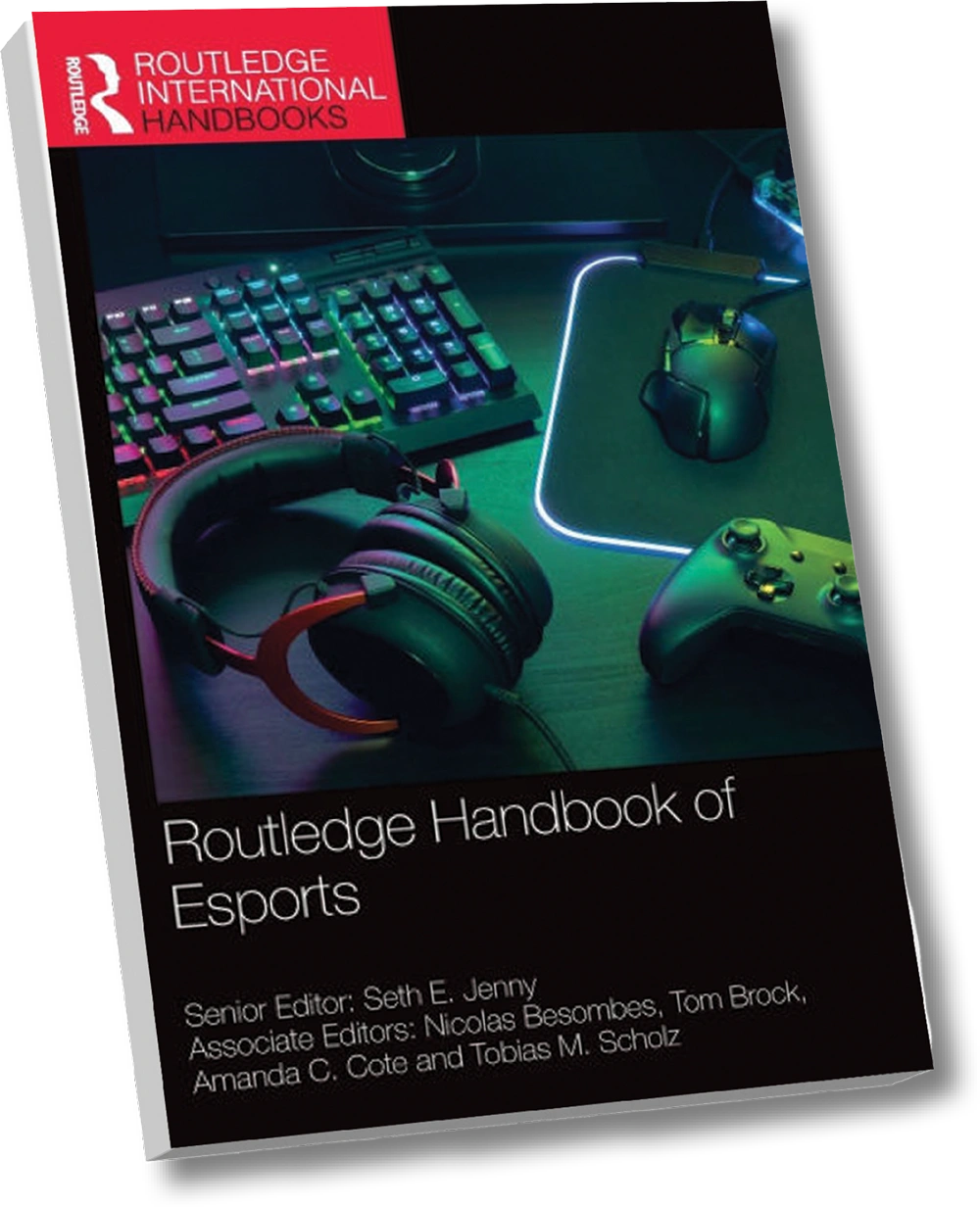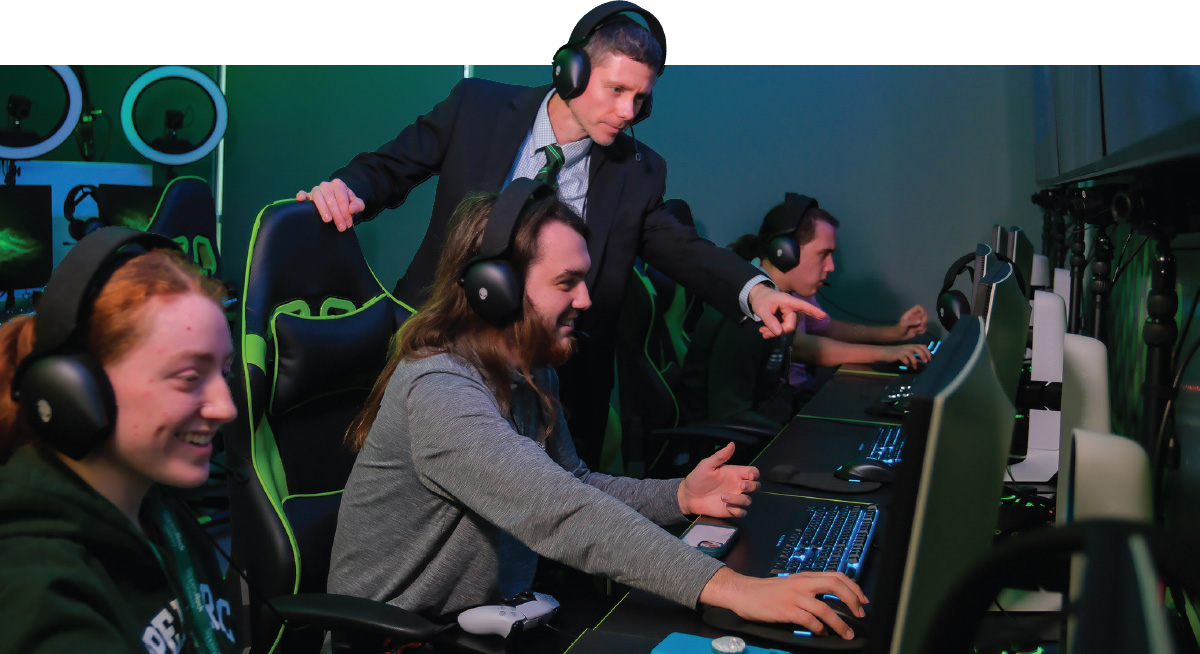Ahead of the Game
sports isn’t all fun and games. It’s big business, a source for cultural and educational enrichment, an area of human performance science, and, for a professor at Slippery Rock University, a serious field for scholarly work.
Seth Jenny, an SRU associate professor of exercise science, is one of the leading global experts in esports education and curriculum design. He’s the senior editor of the first interdisciplinary textbooks about competitive video gaming, titled “Routledge Handbook of Esports,” released in fall of 2024.
The comprehensive 764-page text features 62 chapters and contributions from 93 authors across 27 countries. The book, which explores the rapid growth of esports within the sports and entertainment industries, covers 10 key themes, including esports research, esports business and management and global esports cultures, with Jenny co-authoring 17 chapters, nine as lead author and two as a solo author.

A 2002 SRU graduate and former captain of The Rock cross country and track and field teams, Jenny emerged as an esports researcher, not through computer science, but through health sciences. Since 2017, Jenny has taught in the Public Health and Exercise Science Departments at SRU. After earning his doctoral degree in physical education, sport and exercise science from the University of New Mexico, Jenny taught at UNM and Winthrop University and co-wrote the curriculum for the first undergraduate major in esports sports science at Shenandoah University.
“Esports is being used as a vehicle to help students learn so many different transferable skills.”
At SRU, Jenny is the faculty adviser to the Esports Club, one of the most active and popular student organizations on campus, and he teaches two required classes within SRU’s esports minor: Introduction to Esports and Current Issues in Esports, Health, and Society.
“What I’m teaching in my classes is performance and health related skills, but really esports is being used as a vehicle to help the students learn so many different transferable skills,” Jenny said. “I just love any type of instructional technology. And, really, I see esports as a way to teach human relations skills as well as hard skills. There’s hospitality and entertainment industries with event promotion, and with communication and media, with the broadcasting and streaming opportunities. It’s a motivational way for the students to continue to learn and for SRU to fulfill its mission.”


“Our University does a good job at looking at future trends and being proactive in making decisions to meet future needs in different career fields,” Jenny said. “SRU definitely has a mindset of keeping on top of current issues and trending careers.”
The global esports market size is expected to grow from $2.06 billion in 2024 to $9.29 billion by 2032, according to Forbes Business Insights, but other researchers claim that a more accurate estimation of the true market value are as much as $25 billion, including a study conducted by Jenny.
Jenny will continue to stay on top of the evolving esports industry.
“When I’m referencing and citing researchers in my own research, I know many of them personally,” Jenny said. “It is really fun to be able to cite people that you know in your own research and have other people cite you too. That is one thing that’s unique about esports research.”
